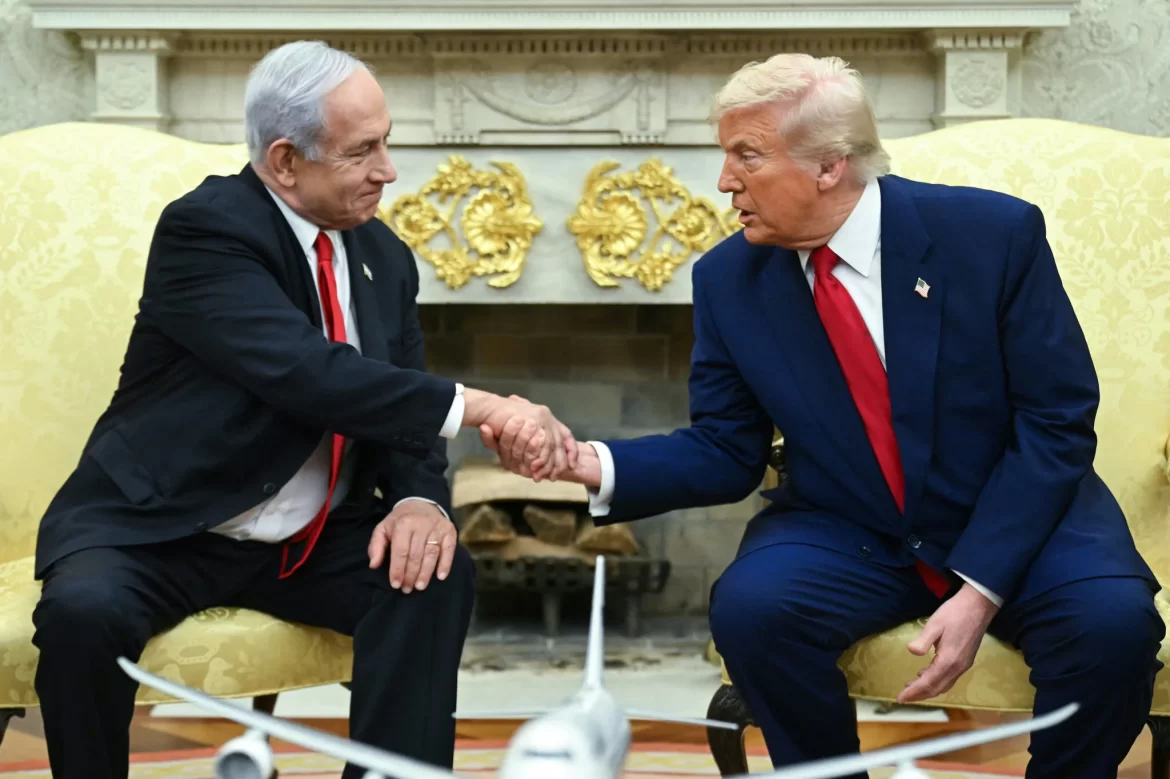Israel Ready to End Gaza War Within Two Weeks; Agreement Reached on Replacing Hamas with New Government
A major development has occurred in efforts to bring about a Gaza War End, following a phone conversation between Israeli Prime Minister Benjamin Netanyahu and former U.S. President Donald Trump.
For background on how the conflict escalated earlier this year, read our detailed report on the Israeli attack on Gaza in 2025.
According to the Israeli newspaper Israel Hayom, Trump and Netanyahu have agreed to an immediate Gaza War End and to expand the scope of the Abraham Accords. This aligns with earlier reports from regional sources suggesting that Israel is willing to end the Gaza war, pointing toward a broader strategic shift.
Citing a well-informed source, the report claims both leaders agreed that the Gaza War End would take place within the next two weeks.
The newspaper also claimed that under this plan, the United Arab Emirates, Egypt, and two other Arab countries would establish a joint administration in Gaza to replace Hamas. Hamas leadership would be exiled, and all hostages would be released.
However, several Arab countries have already stated clearly that they will not participate in Gaza’s reconstruction unless the Palestinian Authority is given a role—something that could pave the way for a future two-state solution. Netanyahu, however, has firmly rejected any involvement of the Palestinian Authority.
The report adds that this enthusiastic phone call took place on Monday night and included U.S. Secretary of State Marco Rubio and Israeli Minister for Strategic Affairs Ron Dermer.
Additionally, the report claims that Gaza civilians who wish to emigrate will be resettled in unspecified countries.
It is also stated that Saudi Arabia and Syria are expected to establish diplomatic relations with Israel, with other Arab and Muslim nations likely to follow suit.
In return, Israel will announce its support for a two-state solution in the future, provided that reforms are implemented within the Palestinian Authority. Furthermore, the U.S. will consider recognizing Israeli sovereignty over certain parts of the West Bank.
These developments are particularly significant in light of Tuesday’s Israeli counterattack following an Iranian breach of the ceasefire. Trump reportedly expressed strong disapproval of the Israeli response and demanded the dismissal of Netanyahu’s ongoing corruption charges.
While this plan could signal a major geopolitical shift in the Middle East, on-the-ground realities and the differing priorities of all parties remain significant obstacles.















